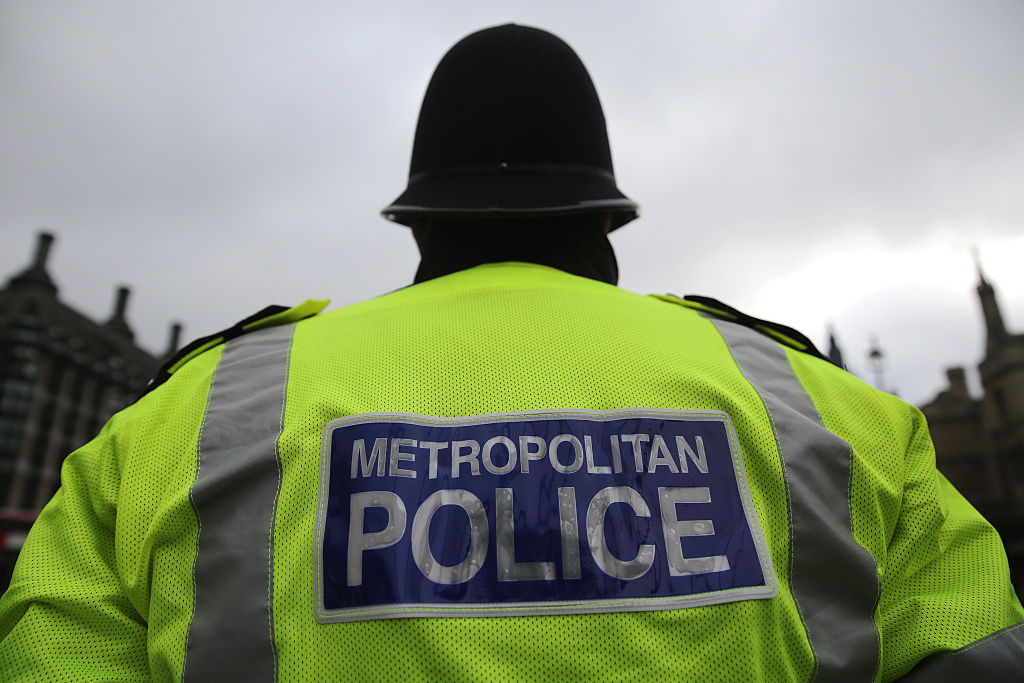‘The basic mission for which the police exist is to prevent crime and disorder.’ Those are the words of Sir Robert Peel, widely regarded as the founder of modern policing. In 1829, as home secretary, he established the Metropolitan Police in London, the first full-time professional force.
It’s estimated that 83 per cent of calls into police control rooms across England and Wales do not relate to crime
But if Sir Robert, who went on to serve twice as prime minister, were alive today he would surely be appalled at how that ‘basic mission’, the first of his nine ‘principles of policing’, has been eroded. Since the years of austerity, as health and social care agencies have become increasingly stretched, it has been left to the police to plug the gaps, tracking down missing hospital patients, responding to concerns about people’s welfare and dealing with those at risk of suicide. It’s estimated that 83 per cent of calls into police control rooms across England and Wales do not relate to crime, with 40 per cent of police time taken up by issues concerning mental health and vulnerability.
Sir Mark Rowley, the Met Commissioner, has signalled his intent to reverse the trend, announcing that officers will no longer attend health-related emergency calls unless there’s a threat to life. Health staff will be expected to handle them instead. It would bring Scotland Yard back towards that basic mission set out by Peel almost 200 years ago.
Sir Mark’s new policy was outlined in a letter, in which he says that the Met is ‘failing Londoners twice’. It has been seen by the Guardian.
‘We are failing them first by sending police officers, not medical professionals, to those in mental health crisis, and expecting them to do their best in circumstances where they are not the right people to be dealing with the patient,’ the Commissioner wrote.
‘We are failing Londoners a second time by taking large amounts of officer time away from preventing and solving crime, as well as dealing properly with victims, in order to fill gaps for others.’
The plans are due to take effect by September, sparking alarm among health organisations. They claim that people in crisis will be left ‘in limbo’ because the NHS does not have the resources or staff to provide support. But it really is something they ought to have seen coming and prepared for.
Police chiefs have been complaining that they have been taking up the slack around mental health for more than a decade. Their concerns amplified after Theresa May, who was appointed home secretary in 2010, declared that officers should be ‘single-minded crime-fighters’, judged solely on their record in cutting offending. The remark infuriated the service as it ignored the realities of day-to-day policing.
In 2013, May was challenged at the annual conference of the Police Federation, which represents officers at the rank of constable, sergeant and inspector. Steve Williams, who was then its chairman, said too many mentally unwell people were being held in police stations and patrol cars had to ferry patients to hospital because there weren’t enough ambulances.
Two years later, the National Audit Office highlighted a lack of police training around mental health issues. Then, in 2018, in a highly-critical report titled, ‘Policing and Mental Health: picking up the pieces’, the HM Inspectorate of Constabulary and Fire and Rescue Services said the police should be the ‘last resort, not the first port of call’.
It is little wonder, therefore, that Sir Mark appears to have run out of patience. The new Commissioner made his position clear during a major speech in January, saying, ‘We are doing other agencies’ work to the detriment of police work’, and again in March, in a BBC Newsnight interview, when he warned that changes were afoot. ‘They need to pick this up quickly,’ he said, in a reference to the NHS.
Sir Mark is a commissioner in a hurry. He has pledged to get the force out of ‘special measures’ that it was placed under 12 months ago, and he is under intense pressure to rebuild public trust following a series of scandals involving his own officers. Against that background, and having delivered some tough messages for the Met’s own workforce, you can understand why it makes sense for him to urge others to step up – just as he has done by demanding the Crown Prosecution Service stop ‘cherry-picking’ cases to bring to court.
Whether the force really stops attending non-life threatening mental health call-outs by the end of the summer is, however, open to question. Although Sir Mark’s letter reads like a fait accompli, it is arguably more of an attempt to get health agencies to face up to the problem. Those opposing such a swift withdrawal will point to Humberside police, which pioneered the ‘Right Care, Right Person’ approach now about to be adopted by Scotland Yard. Humberside’s population is nine times smaller than London’s; it has about 2,300 police officers compared to 35,500 in the Met. Yet, it still took the Hull-based constabulary 18 months to implement the model, in four stages.
The rewards for Humberside police are clear. There are 508 fewer deployments each month, saving 1,440 officer hours. It has helped the organisation become one of the top performing forces in the country, with a renewed focus on the first of Sir Robert Peel’s principles of policing, preventing crime.
Sir Mark Rowley may cast envious glances towards his colleagues on the Humber. But he would do well to remember the second Peelian principle, that the ‘ability of police to perform their duties is dependent upon public approval of police actions’. If the Met moves away from mental health call-outs, it must be sure that it has the support of the people it serves.






Comments